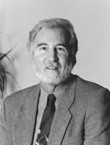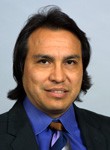International Human Rights: Problems of Law, Policy, and Practice, Seventh Edition
International Human Rights: Problems of Law, Policy, and Practice, Seventh Edition
Buy a new version of this textbook and receive access to the Connected eBook on Casebook Connect, including lifetime access to the online ebook with highlight, annotation, and search capabilities. Access also includes an outline tool and other helpful resources. Connected eBooks provide what you need most to be successful in your law school classes.
International Human Rights: Problems of Law, Policy, and Practice, Seventh Edition by Hurst Hannum, S. James Anaya, Dinah Shelton, and Rosa Celorio is a student-friendly coursebook that surveys the foundational features and diverse components of the international human rights system, while highlighting human rights issues of pressing concern, including racial discrimination, violence against women, the struggles of indigenous peoples, armed conflicts, lack of access to healthcare and other basic necessities, environmental degradation, and climate change, among others.
This coursebook introduces students to the established and developing international law on human rights. Its pages navigate a wide range of substantive norms; procedural rules; and national, regional, and global institutions whose mandate is to promote and monitor compliance with internationally-recognized human rights. The book discusses a range of contemporary human rights challenges, including racial discrimination; violence against women; the struggles of indigenous peoples; armed conflict; threats to free speech, social protest, the defense of human rights; lack of access to health care, and other basic necessities; and environmental degradation and climate change, among others.
This book is artfully organized around the foundational features and diverse components of the international human rights system at both the global and regional levels. Distinct problems related to human rights are introduced to illustrate the real issues that face human rights lawyers and how those issues might be addressed through international (and domestic) processes involving internationally-recognized human rights norms. Balancing practical considerations and theory, this outstanding authorship team delivers a comprehensive text that examines historical underpinnings and contemporary considerations related to human rights efforts across the globe.
New to the Seventh Edition:
- New or updated examination of a range of human rights issues, including racial discrimination and police violence; discrimination and violence against women and LGBTI persons; threats to indigenous peoples; undermining of rights of political participation; the human rights impacts of environmental degradation and climate change; human rights in the digital space; among others.
- Discussion of the formidable impacts on international law and human rights of the Russia-Ukraine conflict that began in early 2022.
- Exposition of new human rights treaties, declarations, and decisions of judicial and other human rights bodies.
- Discussion of new developments regarding human rights institutions and international procedures to advance human rights.
- Updates on United States case law on the judicial enforcement of international human rights norms.
- This edition of the book is substantially reduced in volume from prior editions, such that it is better designed for use in a one-semester, three-hour course or seminar at the law school or university law.
Professors and students will benefit from:
- Emphasis on practical issues that influence the application, implementation, and development of human rights law.
- Problem-oriented focus with the goal to motivate students to think about concrete issues and the application of human rights law to the real world.
- Discussion of current issues in human rights today.
- Discussion of not only global but also regional treaties, mechanisms, institutions, and procedures related to human rights.
- Comprehensive coverage that highlights substantive discussion of human rights problems around the world.
- Presentations of differing views on the theory and practice of human rights.
- Discussion of the theoretical foundations of human rights, cultural relativism, and sovereignty.
- Examination of historical developments in human rights as well as modern issues and conflicts.
- Thoroughly updated text that includes new documents and jurisprudence, as well as recent scholarship.
- Exposition of the interrelationship between human rights and international humanitarian law and international criminal law.
- Updated examination of the domestic enforcement of international human rights law.
Product Information
International Human Rights: Problems of Law, Policy, and Practice, Seventh Edition
Connected eBook + Hardcover
International Human Rights: Problems of Law, Policy, and Practice, Seventh Edition
Connected eBook (Digital Only)
International Human Rights: Problems of Law, Policy, and Practice, Seventh Edition
LLPOD



